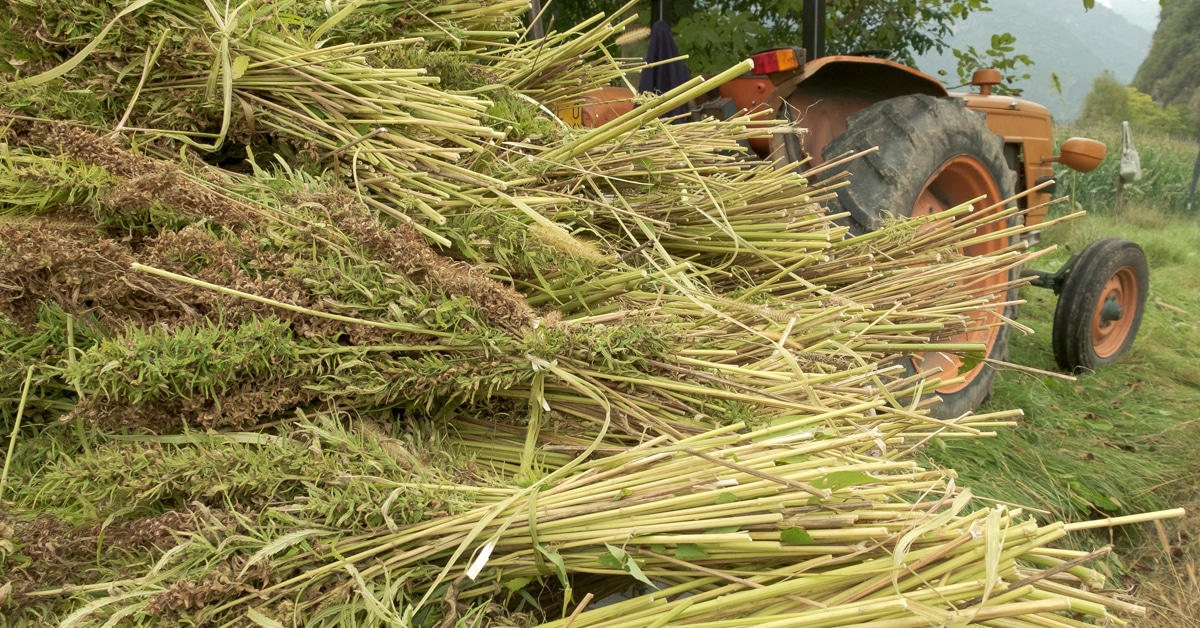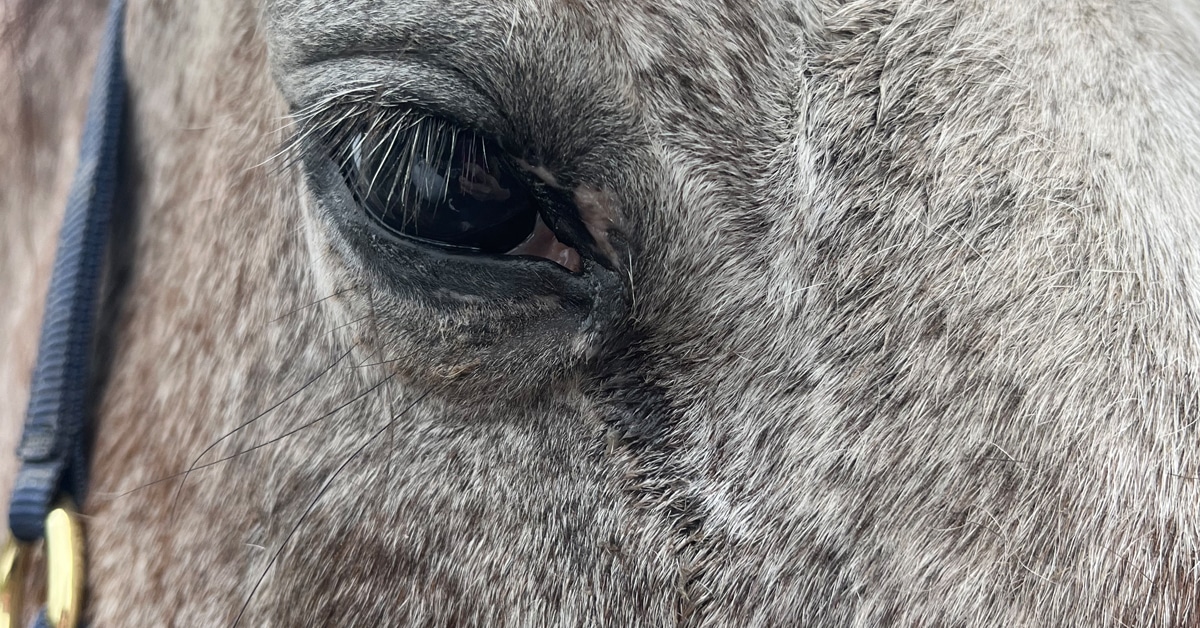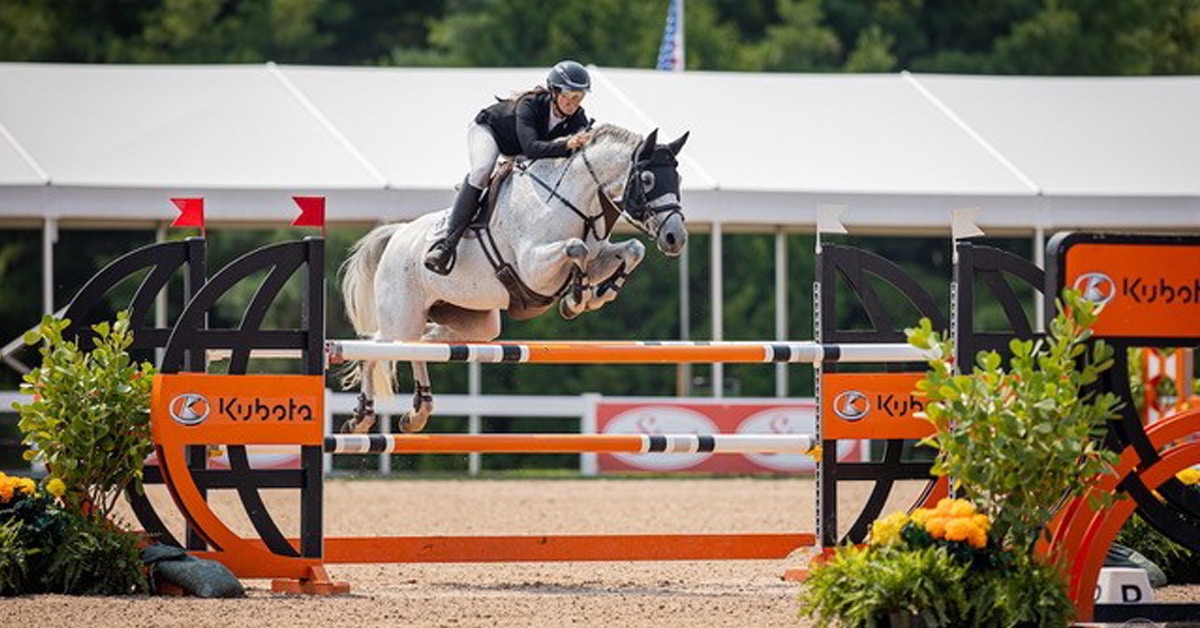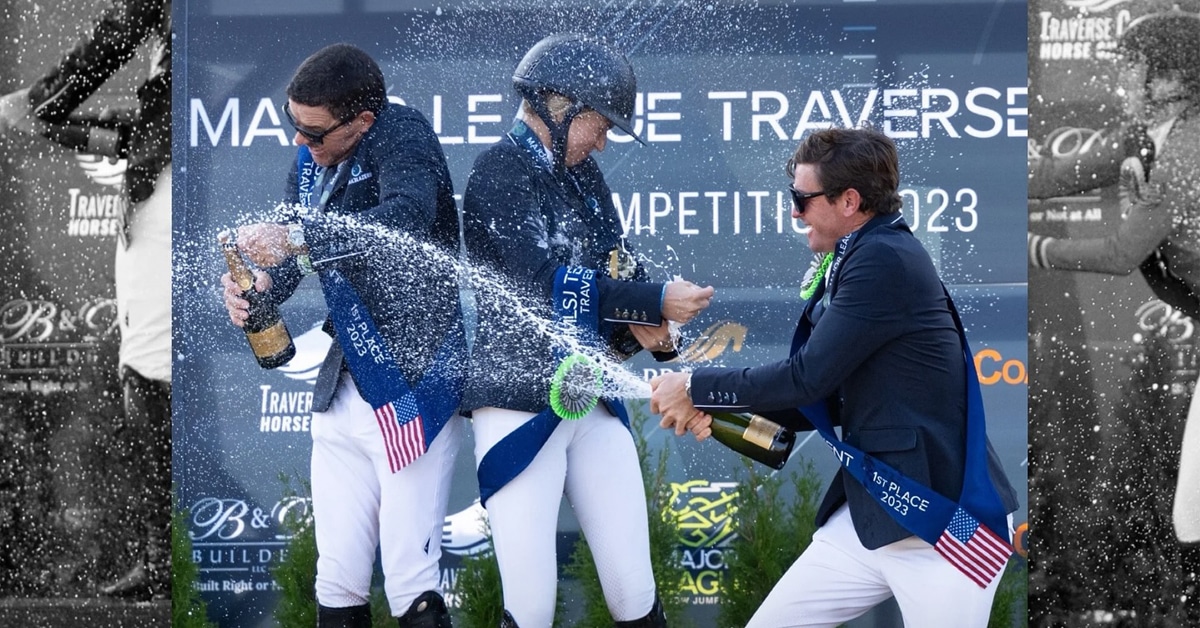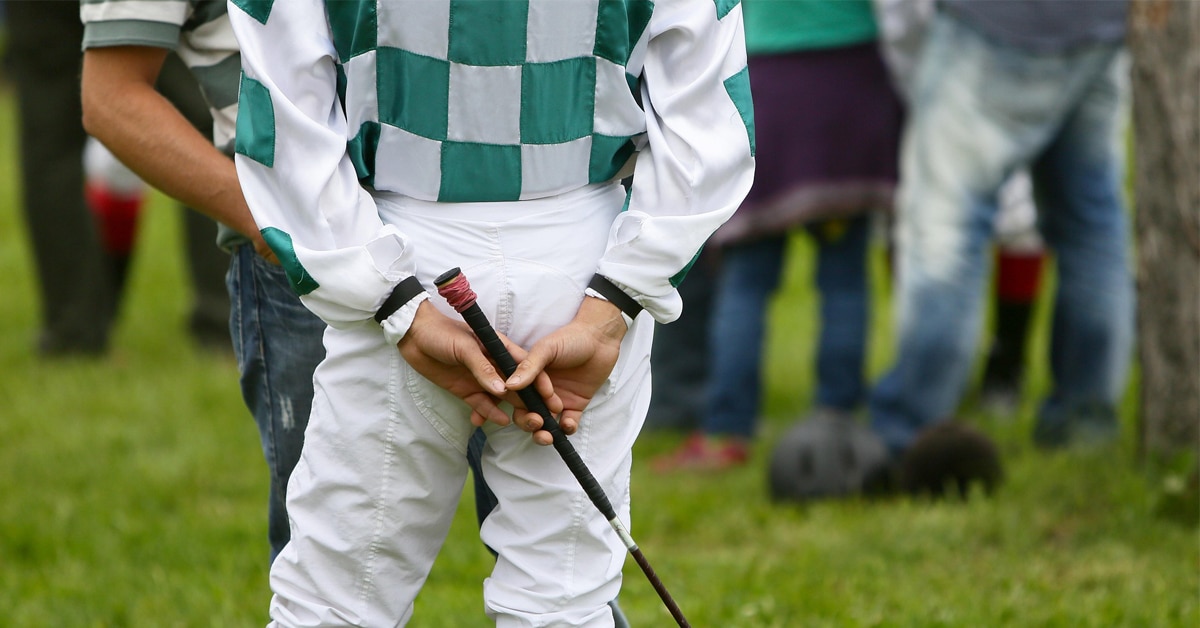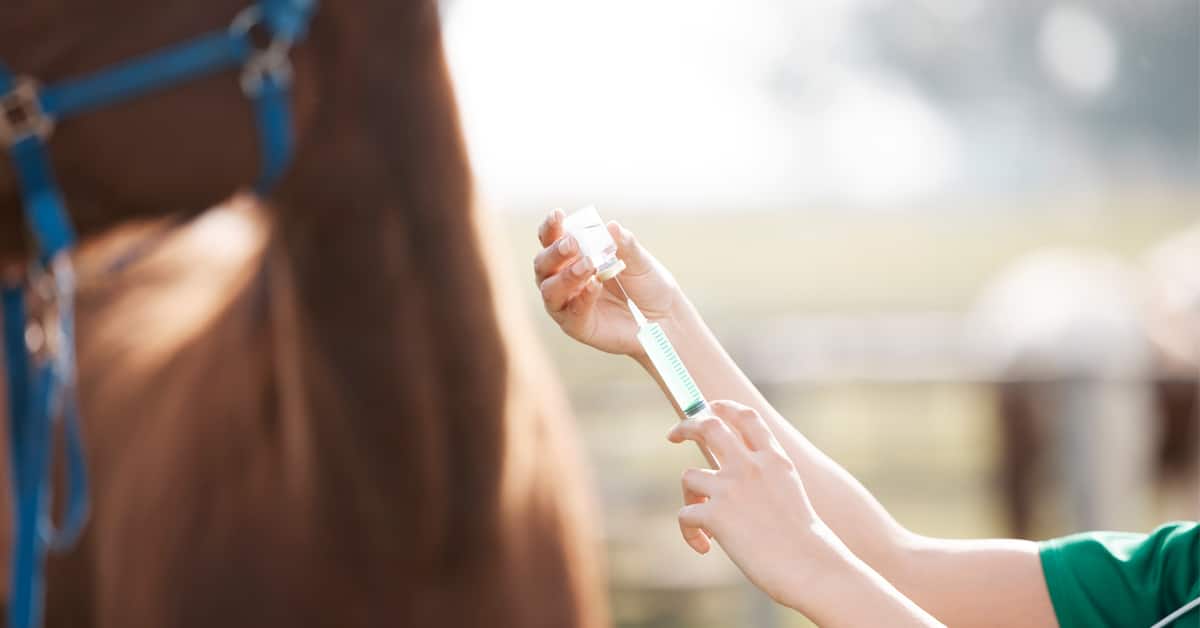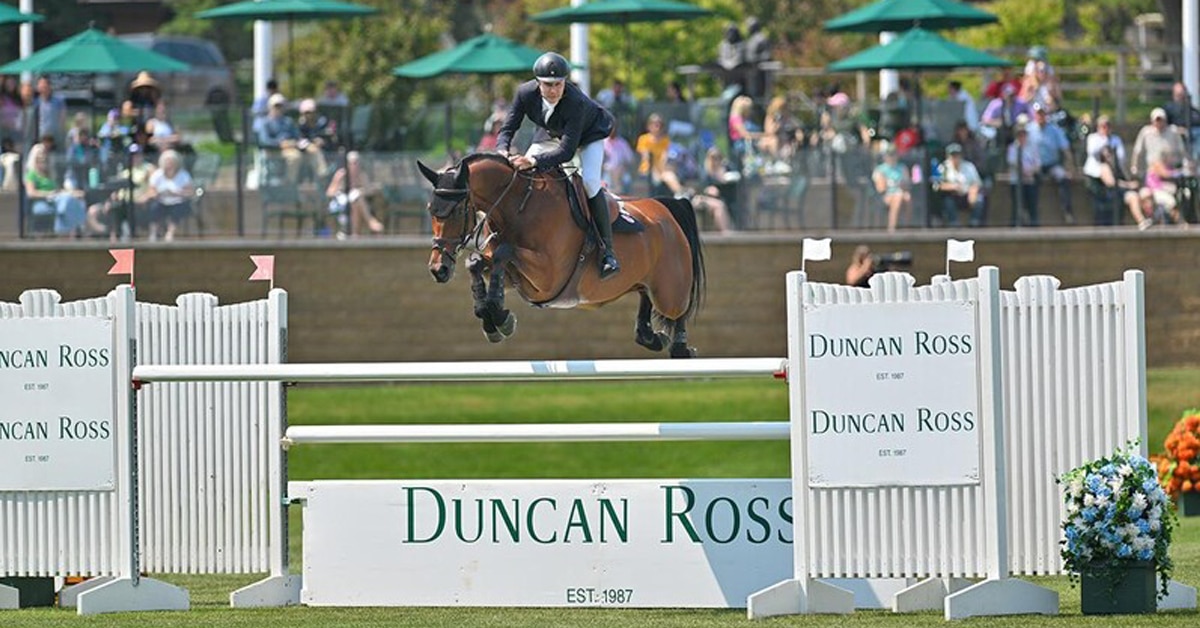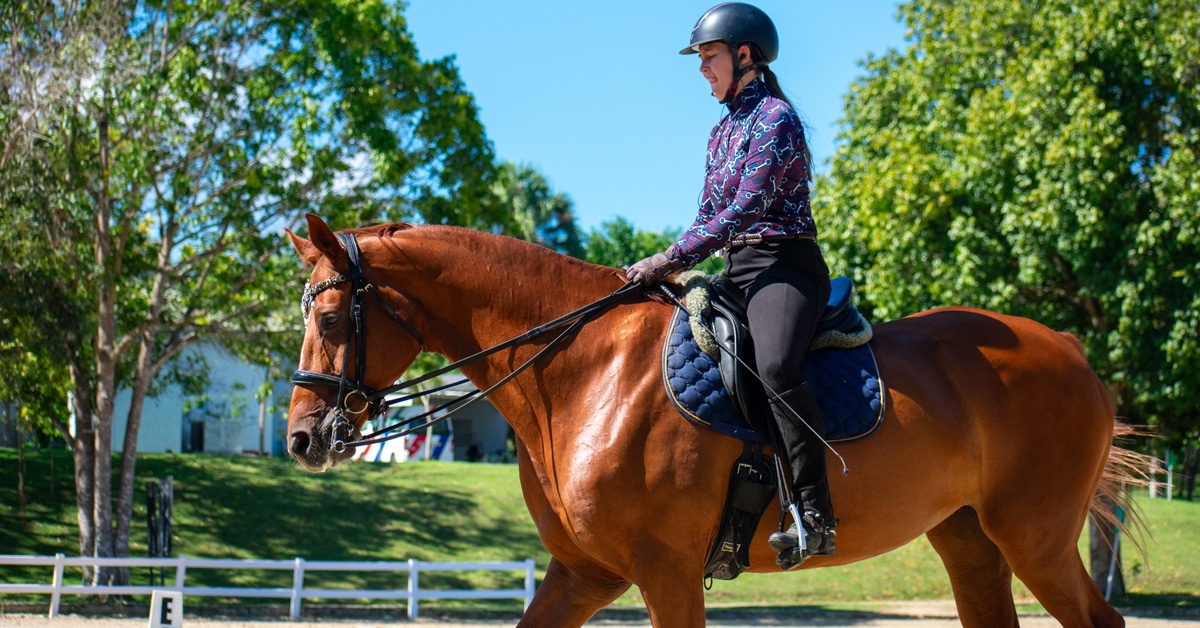Dana Johnston describes getting His Nibs, her first miniature horse, as “the best thing I ever did.” It wasn’t her original plan for a later-in-life horse, though. When she retired at 64 she fulfilled a lifelong dream of riding by taking lessons and eventually buying her own horse, a Thoroughbred. But then she had to have a hip replacement requiring many months off riding. Even though the surgeon said she could ride again, she chose not to.
“I’m old, not stupid!” the Vankleek Hill, ON resident recalls telling the surgeon with a laugh. “If I’d ridden from when I was young I’d have the body memory. But for me it wasn’t about if you fall off, it was when you fall off. And with a break you can’t ride for months and your muscles start to atrophy.”
Now in her seventies, Dana is one of a growing number of older adults — both riders and non-riders — discovering the many pleasures of minis. Nibs, a 31″ brown-and-white pinto, has become a popular therapy horse, putting smiles on the faces of nursing home residents and prompting many to reminisce about their own horsey pasts. Dana has also embraced driving, even having a cargo van customized with a stall and a winch for the carriage.

Trainer, coach, author and mini enthusiast Kendra Gale.
Some miniature horse aficionados do start a little earlier, though — or a lot. Kendra Gale, trainer, coach and author of The Big Book of Miniature Horses, started before she was two years old when her grandfather, a lifelong horseman, brought home three little horses.
“As a kid there were many other grandparent and grandkid teams showing miniature horses,” the owner of Circle J Miniature Horses in Cochrane, AB, recalls. “Even then the demographic of enthusiasts was heavily seniors.”
Kendra says older equestrians considering miniatures should know that all of their previous horse experience is valid. “Too many people think miniature horses are a whole different ball game, but they are horses in every way — just scaled down, and they deserve the same respect and level of training as any other horse.”
The reasons an older person might choose a miniature tend to break down along two lines, says Carolyn Aarup, a competitive equestrian from the age of seven who now breeds and trains miniature horses at Dakota Winds Farm in Meaford, ON. “It’s people who’ve had horses but are downsizing properties, or have health issues, or their horse has died,” says Carolyn. “They want to stay in it, but can’t have the big guys. Then there are those new to it, who are fascinated by horses but who find miniatures an easier way in.”
Carolyn notes that there’s a strong contingent of older women in particular drawn towards miniatures, but couples as well, some of whom find it an ideal shared activity in retirement. People are attracted by the training possibilities they may not have realized existed, everything from liberty work to jumping, and by just how “cool and fun” miniatures can be.

Carolyn Aarup (who is clearly not a senior!) drives a mini in competition. (Bruce Jones, High Hopes Farm photo)
Competition is thriving too, with sanctioned registry shows at the regional, national and world level. Gale says the Very Small Equine division of Combined Driving (essentially the driving equivalent of eventing), with horses of all sizes competing in driven dressage, a marathon and an obstacle competition, is the fastest-growing division of the sport. Driving itself is logistically simpler with a smaller horse, since it’s possible to harness, hitch, handle and drive by yourself. Even those who have mobility issues requiring an assist with the gear may find driving is still feasible, not to mention a thrill.
The physical risks of working with miniatures aren’t as great as with full-sized horses, another draw for older adults, but neither are they non-existent, making it important for prospective owners to inform themselves about training, handling and care. The breed does have some concerns particular to size — woe betide an owner who mistakenly treats a miniature exactly like a full-sized horse, or worse, a pet dog. They gain weight very quickly and are prone to founder and laminitis, which means careful nutrition and management are a must (but on the plus side, lower feed bills!)
Education about minis is an ongoing process, says Aarup, including the need to correct a frequent slur. They are not, she says with an audible shudder, the “U” word (useless), simply because they aren’t rideable. Johnston concurs, and recommends keeping your miniature horse where others understand their value, having experienced boarding where she was regarded as “the geezer with the useless horse.”
Johnston finds miniatures satisfying in the same way as full-sized horses, as they are “four-legged creatures who learn to trust and to do things with and for you.” Gale does offer one warning about the hazards of mini ownership, though. “As the saying goes, miniature horses are like potato chips, you can’t stop at just one!”
The Latest
